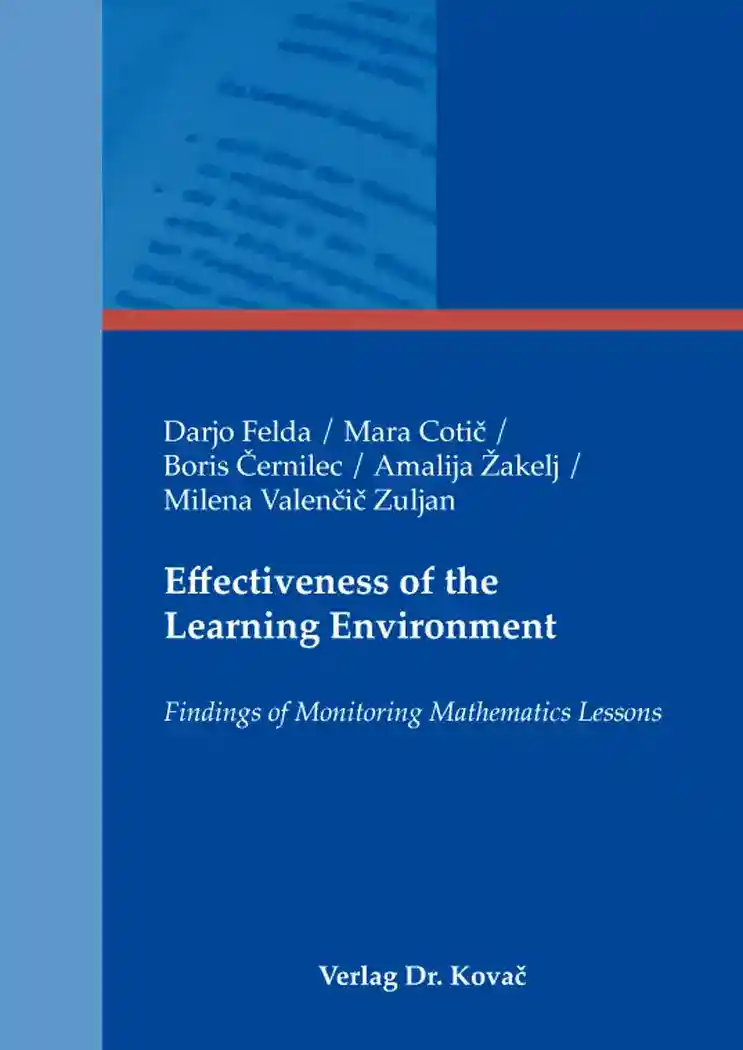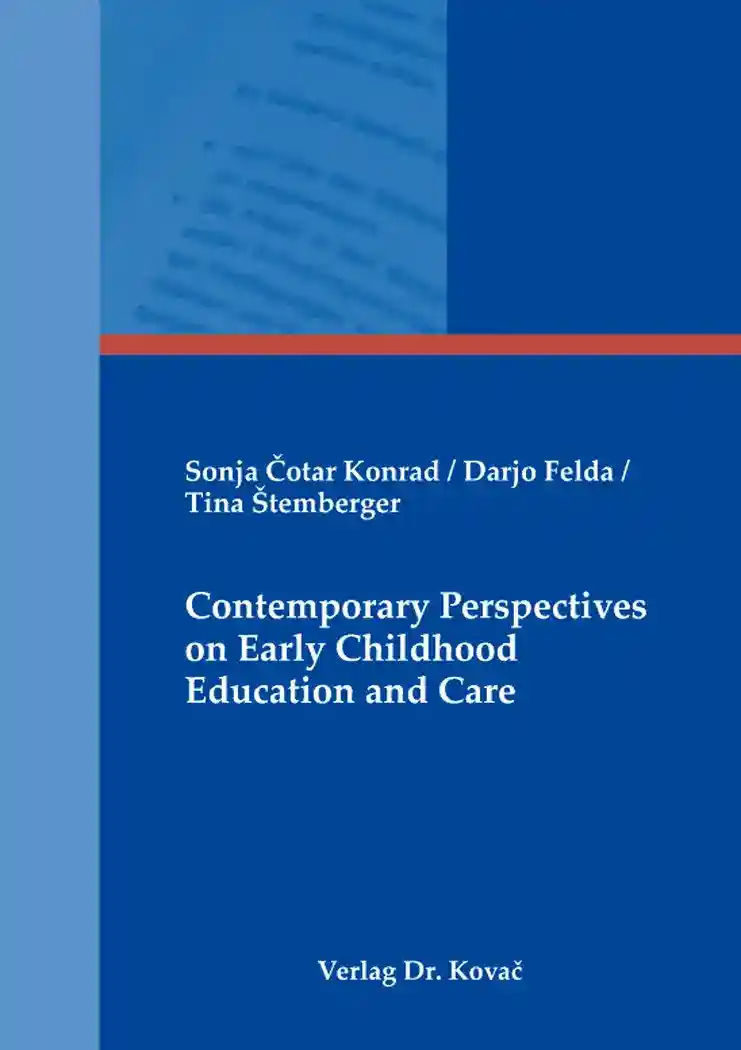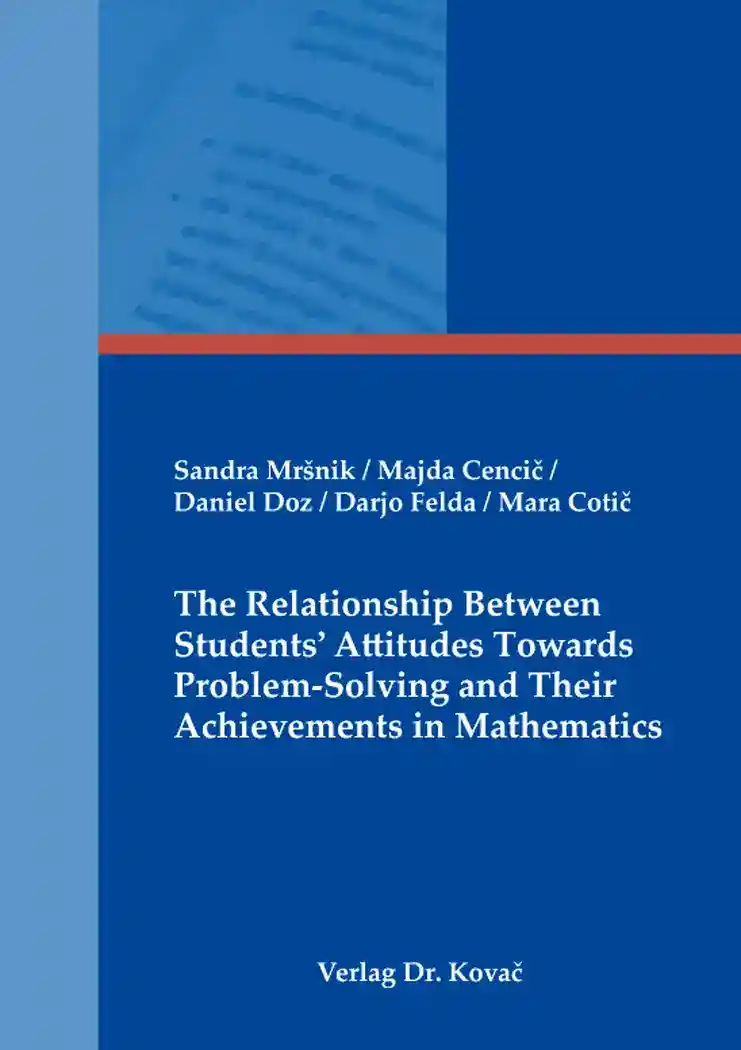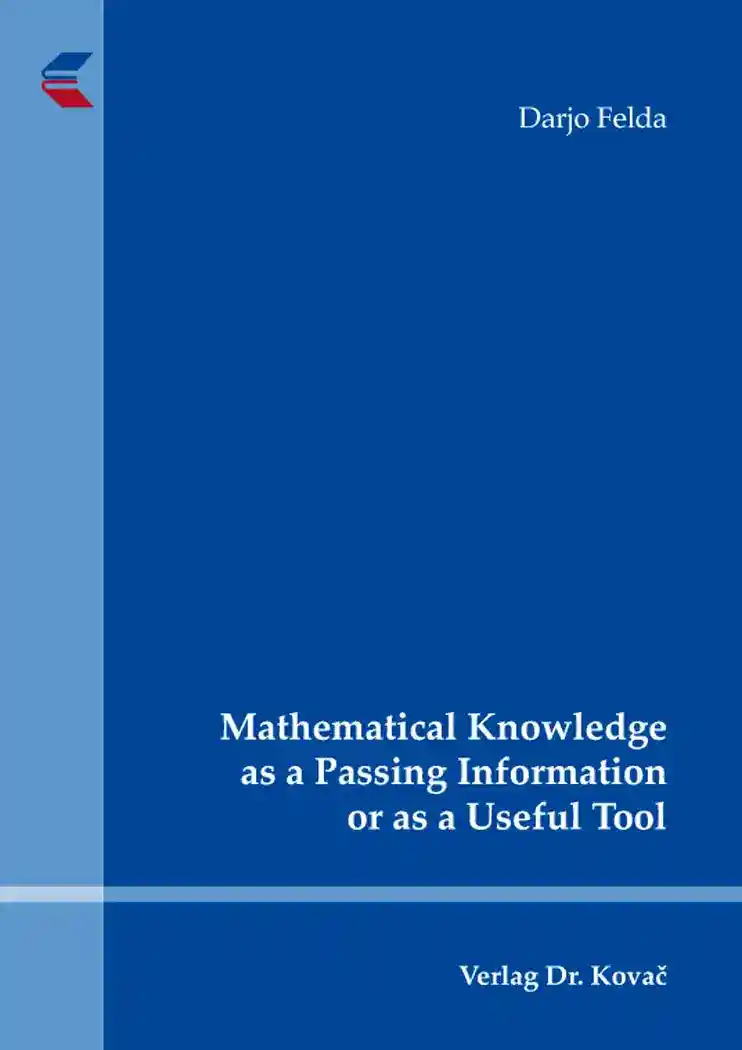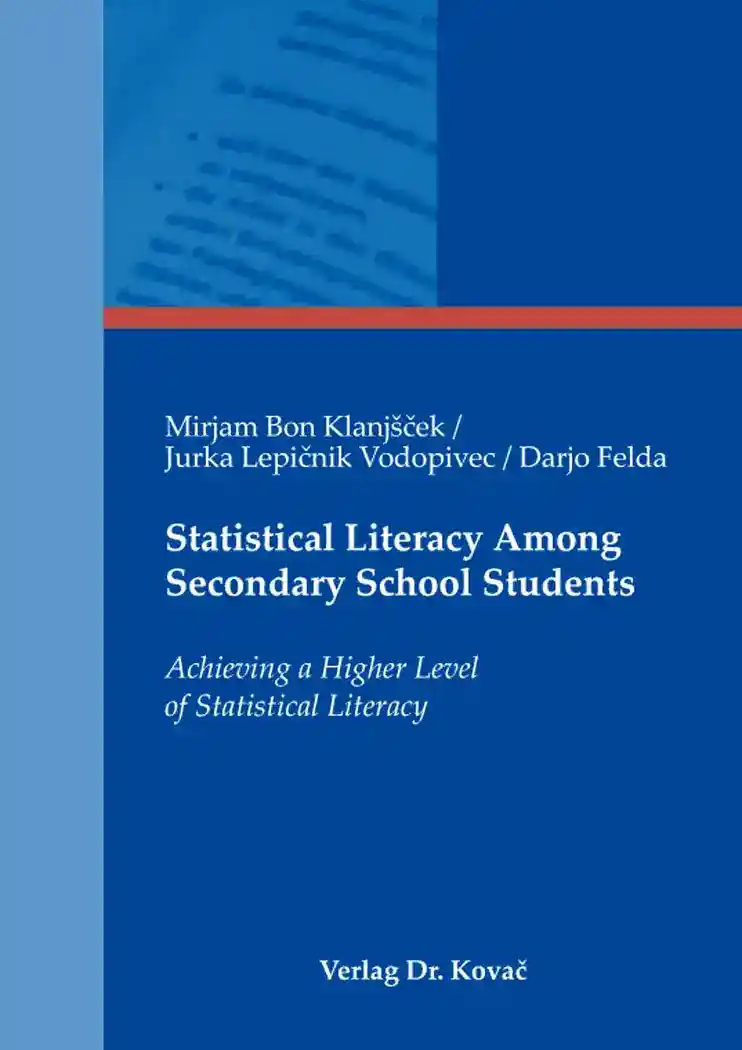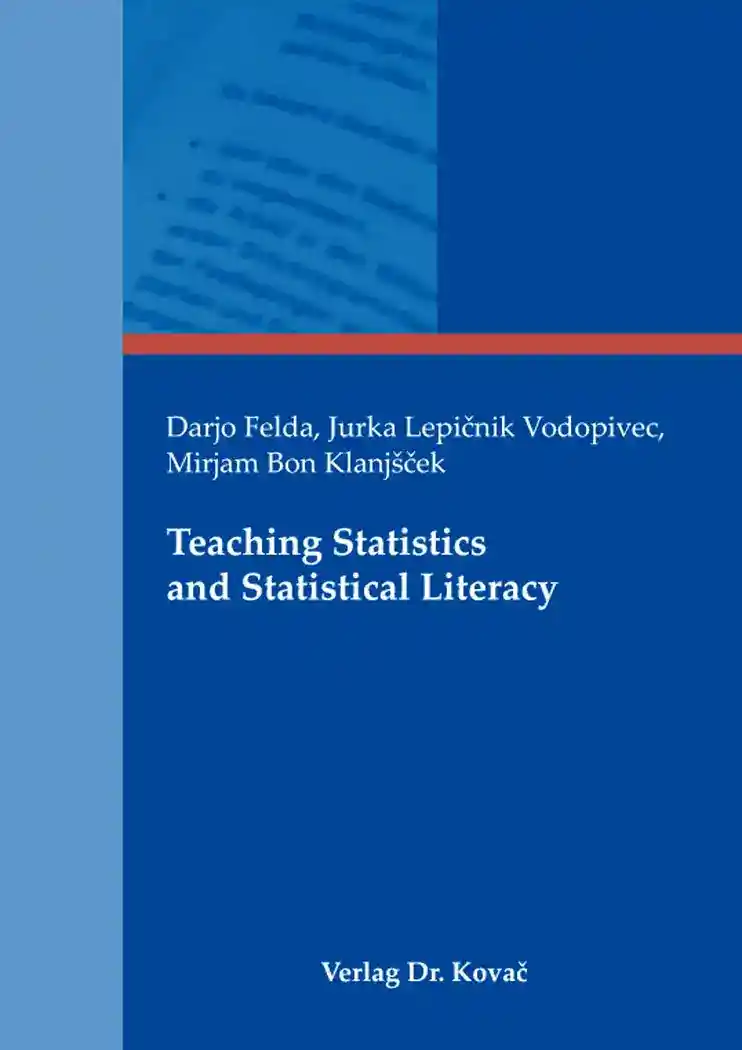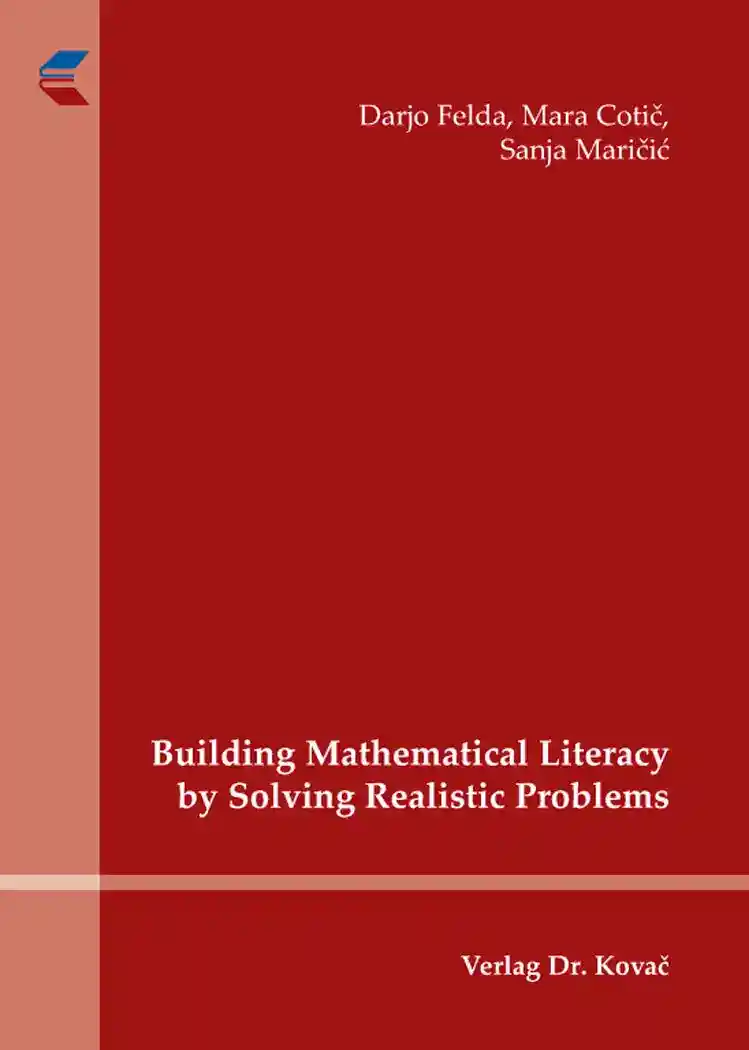Darjo Felda / Mara Cotič / Boris Černilec / Amalija Žakelj / Milena Valenčič ZuljanEffectiveness of the Learning Environment
Findings of Monitoring Mathematics Lessons
Studien zur Schulpädagogik, Band 90
Hamburg 2020, 126 Seiten
ISBN 978-3-339-11730-4 (Print) |ISBN 978-3-339-11731-1 (eBook)
Zum Inhalt
As mathematics classes should encourage different ways of thinking, creativity, formal knowledge and skills, and enable students to know the useful and meaningful side of mathematics, it is necessary that the organization of classes contributes to a high student achievement. The high quality classes are focused as a combination of teaching and learning to reach an effective learning environment which requires the students to persevere and work hard and represents a challenge they can achieve through effort. By well-thought-out teaching configurations and teaching methods and by supplementing the traditional, problem-oriented and project-oriented classes we can strive for a more effective learning and teaching process. The project- and problem-oriented classes do acquire especially in the field of critical thinking, problem-solving skills, attitude towards learning, work habits and conceptual understanding which are all important qualities in knowledge society. We should be aware also of the positive climate for learning as the climate encompasses various affective aspects and influences the learning environment in an important manner.
The research focused on the qualitative aspect of monitoring mathematics lessons to find the extent to which teachers design a stimulating learning environment that allows each individual mental activity and emotional commitment within different models of learning differentiation and individualization. It turned out that it is not so important whether the teaching takes place in homogeneous or heterogeneous groups, but if the teaching methods, teaching forms, organization of lessons, learning materials and atmosphere in the classroom are adapted to the students. When teaching and carrying out activities, the teacher should take into account the student’s abilities, prior knowledge, interests and ways of learning. Special emphasis should be dedicated on encouraging and enabling the student’s active co-creation of the learning process, developing the student’s motivation and responsibility for participation in the lesson. For the quality of lessons from the educational point of view, smaller groups are suitable, which enable the teacher to get to know the individual in more depth and to give the individual an appropriate place in the teaching process.
Schlagworte
Heterogene GruppenHomogene GruppenLearning EnvironmentLehrermotivationLernumgebungMathematikunterrichtPädagogikUnterrichtsorganisationUnterrichtsüberwachungIhr Werk im Verlag Dr. Kovač

Möchten Sie Ihre wissenschaftliche Arbeit publizieren? Erfahren Sie mehr über unsere günstigen Konditionen und unseren Service für Autorinnen und Autoren.
Weitere Bücher der Autoren
Contemporary Perspectives on Early Childhood Education and Care
Hamburg 2023, ISBN 978-3-339-13530-8 (Print) |ISBN 978-3-339-13531-5 (eBook)
Hamburg 2022, ISBN 978-3-339-13074-7 (Print) |ISBN 978-3-339-13075-4 (eBook)
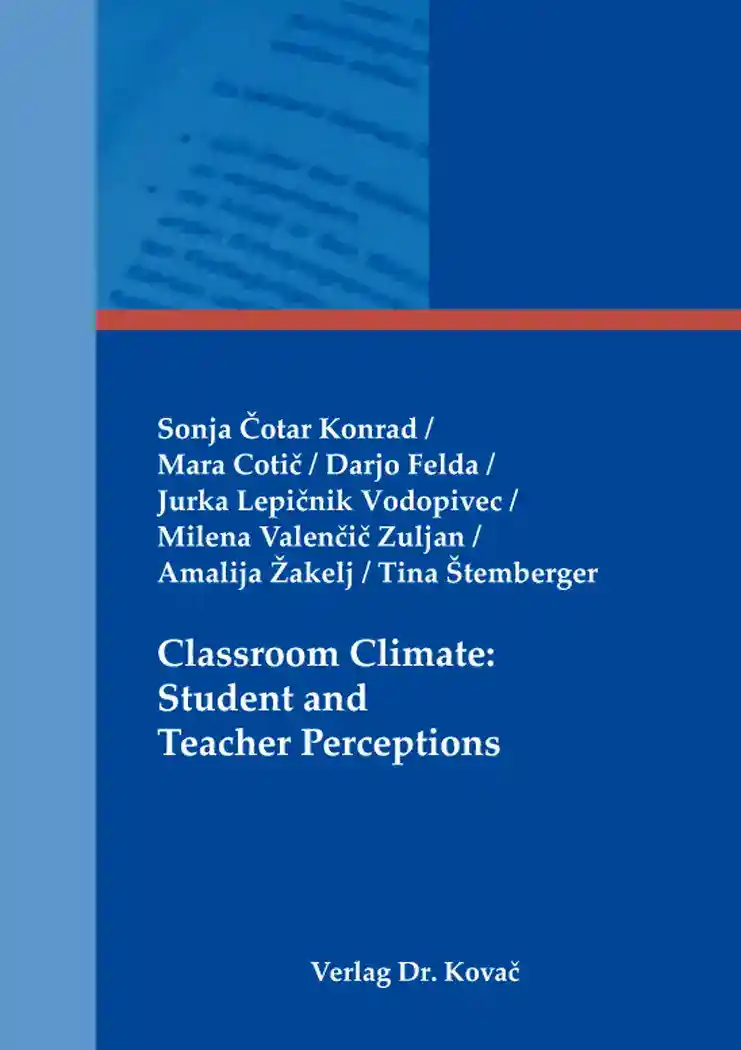 Sonja Čotar Konrad / Mara Cotič / Darjo Felda / Jurka Lepičnik Vodopivec / Milena Valenčič Zuljan / Amalija Žakelj / Tina Štemberger
Sonja Čotar Konrad / Mara Cotič / Darjo Felda / Jurka Lepičnik Vodopivec / Milena Valenčič Zuljan / Amalija Žakelj / Tina ŠtembergerClassroom Climate: Student and Teacher Perceptions
Hamburg 2021, ISBN 978-3-339-12570-5 (Print) |ISBN 978-3-339-12571-2 (eBook)
Mathematical Knowledge as a Passing Information or as a Useful Tool
Hamburg 2019, ISBN 978-3-339-10958-3 (Print) |ISBN 978-3-339-10959-0 (eBook)
Statistical Literacy Among Secondary School Students
Achieving a Higher Level of Statistical Literacy
Hamburg 2018, ISBN 978-3-339-10356-7 (Print) |ISBN 978-3-339-10357-4 (eBook)
Teaching Statistics and Statistical Literacy
Hamburg 2017, ISBN 978-3-8300-9648-1 (Print) |ISBN 978-3-339-09648-7 (eBook)
Building Mathematical Literacy by Solving Realistic Problems
Hamburg 2016, ISBN 978-3-8300-9105-9 (Print) |ISBN 978-3-339-09105-5 (eBook)
